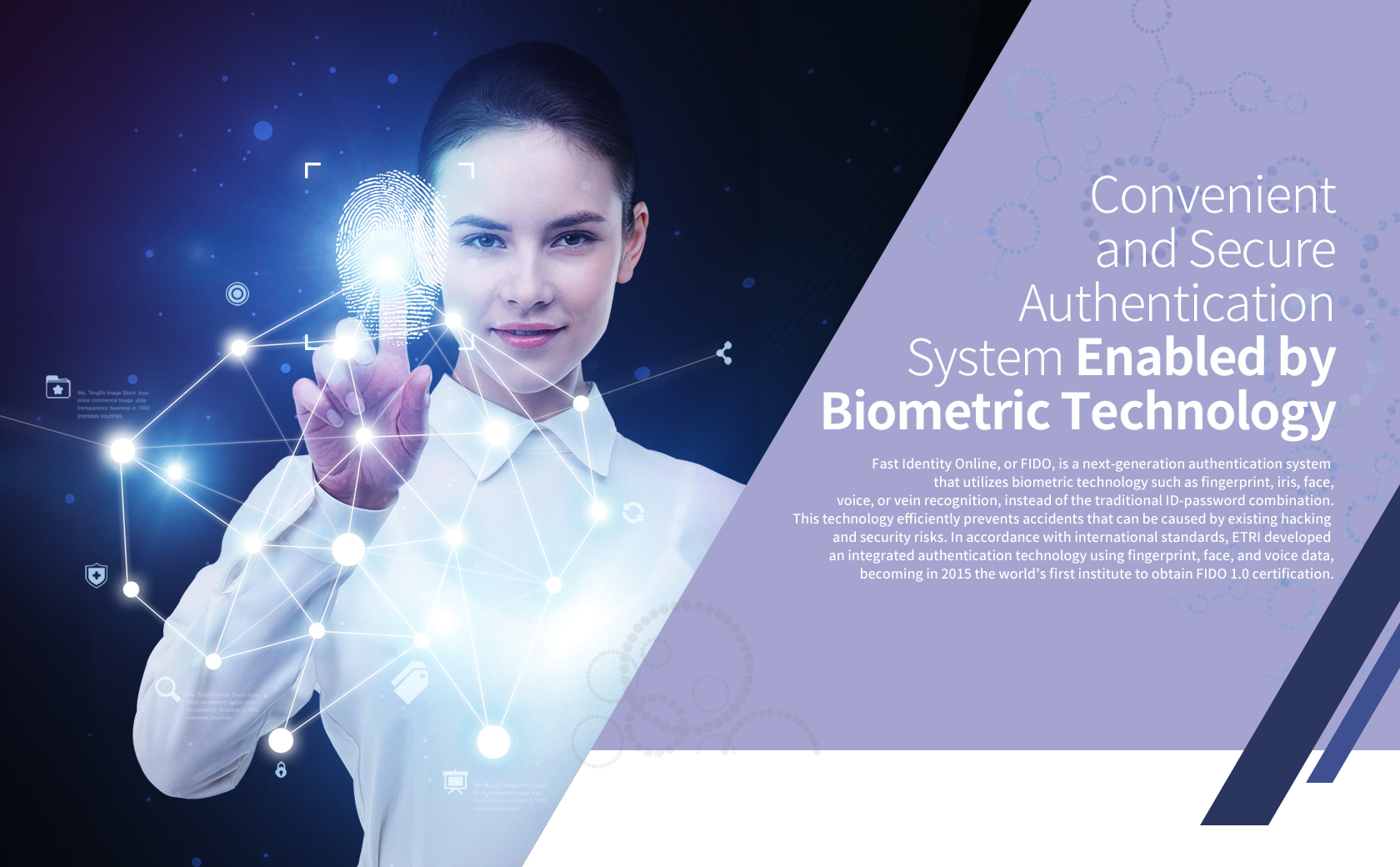
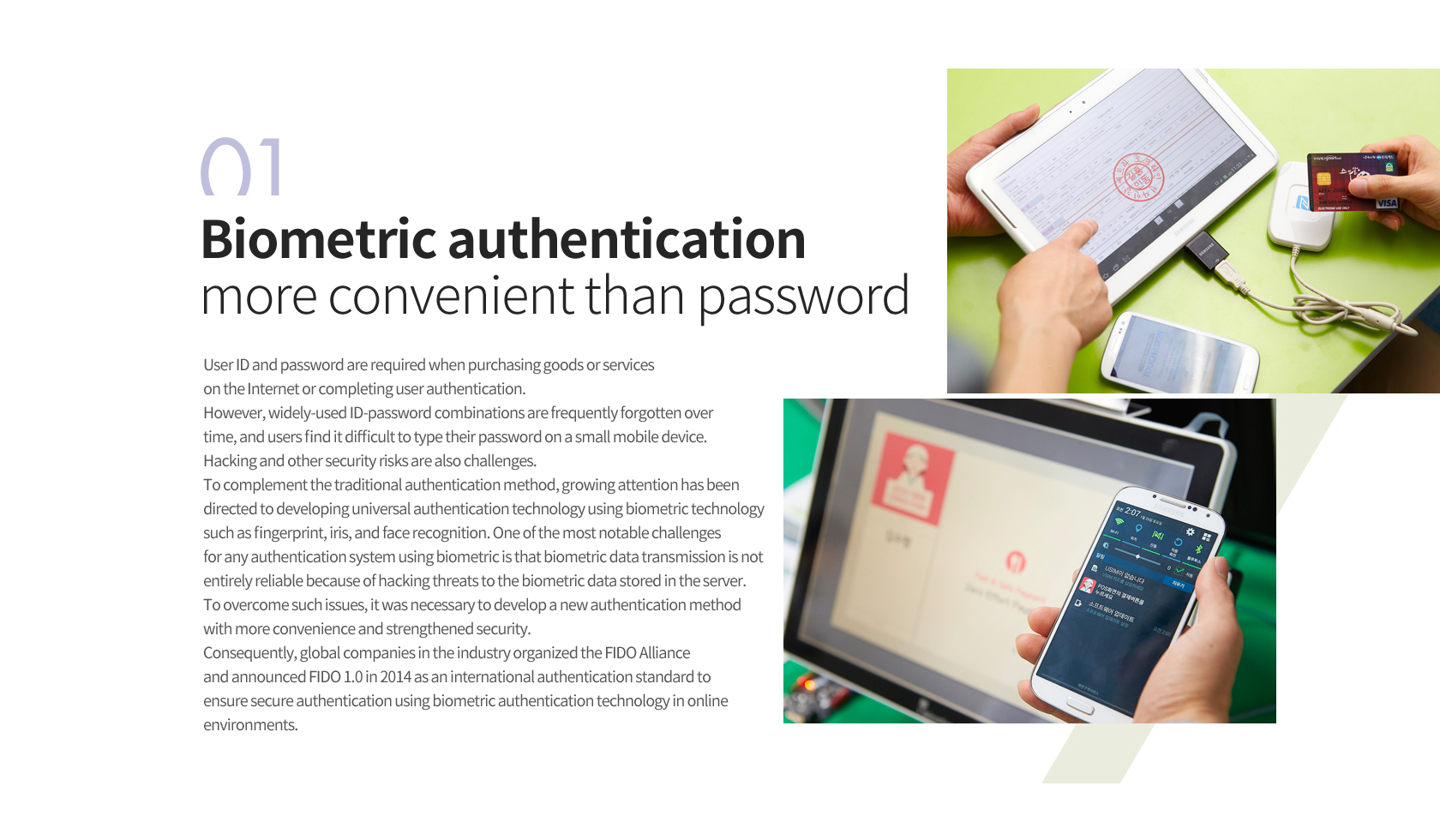
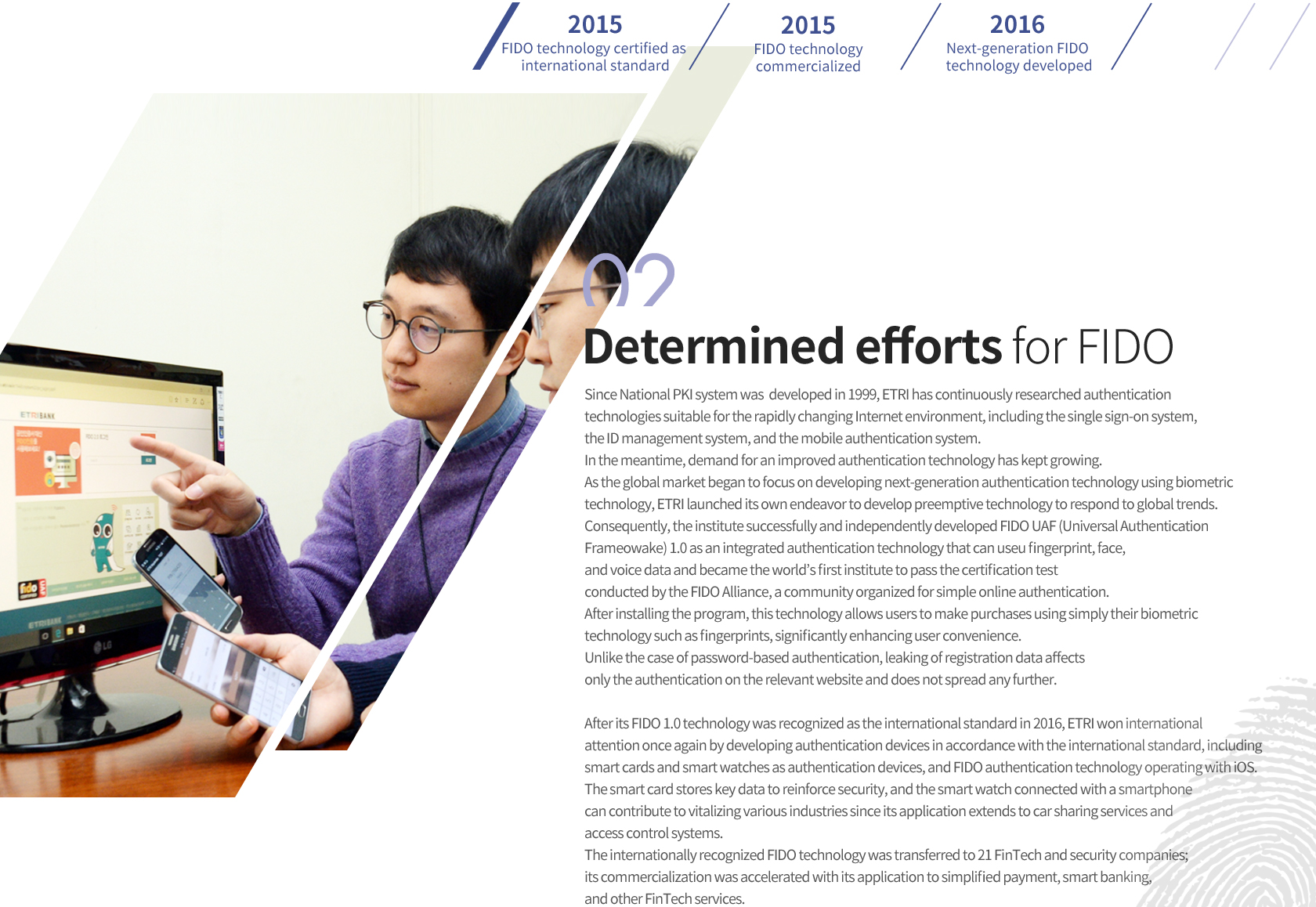
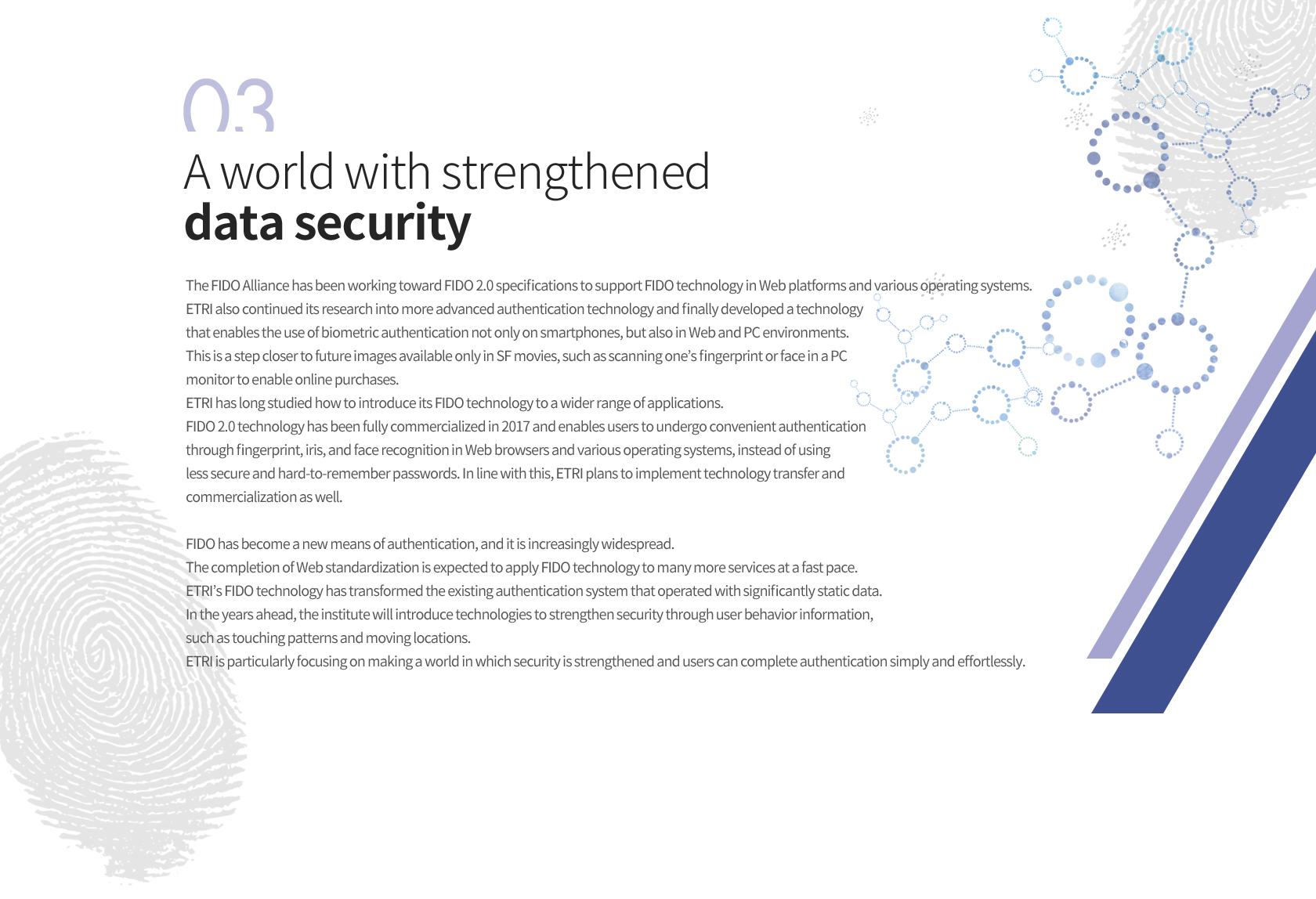
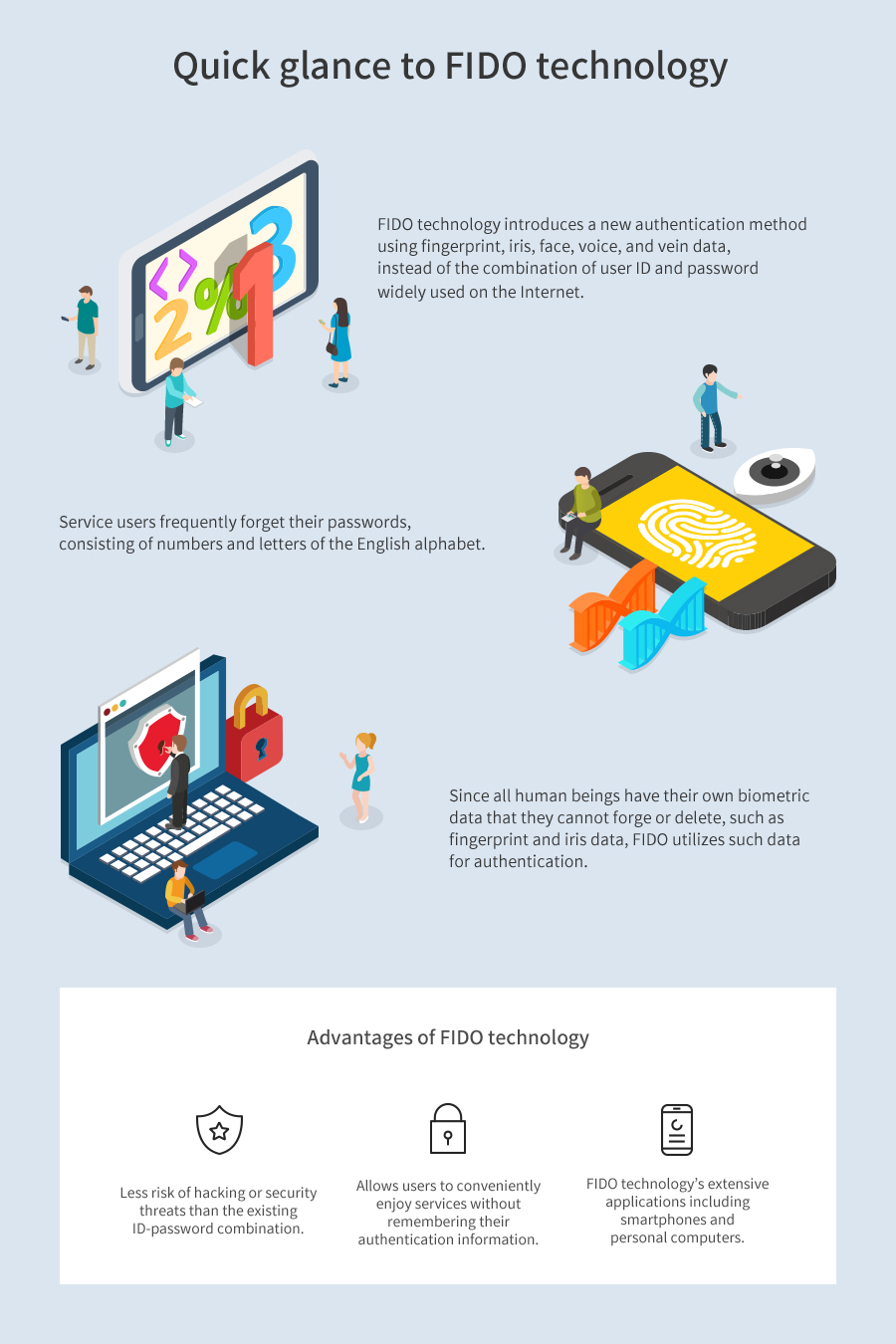

Convenient and Secure Authentication System
Enabled by Biometric Technology
FIDO and Authentication technology
Fast Identity Online, or FIDO, is a next-generation authentication system that utilizes biometric technology such as fingerprint, iris, face, voice, or vein recognition, instead of the traditional ID-password combination. This technology efficiently prevents accidents that can be caused by existing hacking and security risks. In accordance with international standards, ETRI developed an integrated authentication technology using fingerprint, face, and voice data, becoming in 2015 the world’s first institute to obtain FIDO 1.0 certification.
01
Biometric authentication
more convenient than password
User ID and password are required when purchasing goods or services on the Internet or completing user authentication. However, widely-used ID-password combinations are frequently forgotten over time, and users find it difficult to type their password on a small mobile device. Hacking and other security risks are also challenges. To complement the traditional authentication method, growing attention has been directed to developing biometric authentication technology using biometric technology such as fingerprint, iris, and face recognition. One of the most notable challenges for any authentication system using biometric is that biometric data transmission is not entirely reliable because of hacking threats to the biometric data stored in the server.
To overcome such issues, it was necessary to develop a new authentication method with more convenience and strengthened security. Consequently, global companies in the industry organized the FIDO Alliance and announced FIDO 1.0 in 2014 as an international certification standard to ensure secure authentication using biometric certification technology in online environments.

02
Determined efforts
for FIDO
Since National PKI system was developed in 1999, ETRI has continuously researched authentication technologies suitable for the rapidly changing Internet environment, including the single sign-on system, the ID management system, and the mobile authentication system. In the meantime, demand for an improved certificate technology has kept growing. As the global market began to focus on developing next-generation authentication technology using biometric technology, ETRI launched its own endeavor to develop preemptive technology to respond to global trends. Consequently, the institute successfully and independently developed FIDO UAF (Universal Authentication Frameowake) 1.0 as an integrated authentication technology that can use fingerprint, face, and voice data and became the world’s first institute to pass the certification test conducted by the FIDO Alliance, a community organized for simple online authentication. After installing the program, this technology allows users to make purchases using simply their biometric technology such as fingerprints, significantly enhancing user convenience. Unlike the case of password-based authentication, leaking of registration data affects only the authentication on the relevant website and does not spread any further.
After its FIDO 1.0 technology was recognized as the international standard in 2016, ETRI won international attention once again by developing authentication devices in accordance with the international standard, including smart cards and smart watches as authentication devices, and FIDO authentication technology operating with iOS. The smart card stores key data to reinforce security, and the smart watch connected with a smartphone can contribute to vitalizing various industries since its application extends to car sharing services and access control systems. The internationally recognized FIDO technology was transferred to 21 FinTech and security companies; its commercialization was accelerated with its application to simplified payment, smart banking, and other FinTech services.

03
A world with strengtheneddata security
The FIDO Alliance has been working toward FIDO 2.0 specifications to support FIDO technology in Web platforms and various operating systems. ETRI also continued its research into more advanced authentication technology and finally developed a technology that enables the use of biometric authentication not only on smartphones, but also in Web and PC environments. This is a step closer to future images available only in SF movies, such as scanning one’s fingerprint or face in a PC monitor to enable online purchases. ETRI has long studied how to introduce its FIDO technology to a wider range of applications. FIDO 2.0 technology has been fully commercialized in 2017 and enables users to undergo convenient authentication through fingerprint, iris, and face recognition in Web browsers and various operating systems, instead of using less secure and hard-to-remember passwords. In line with this, ETRI plans to implement technology transfer and commercialization as well.
FIDO has become a new means of authentication, and it is increasingly widespread. The completion of Web standardization is expected to apply FIDO technology to many more services at a fast pace. ETRI’s FIDO technology has transformed the existing authentication system that operated with significantly static data. In the years ahead, the institute will introduce technologies to strengthen security through user behavior information, such as touching patterns and moving locations. ETRI is particularly focusing on making a world in which security is strengthened and users can complete authentication simply and effortlessly.









